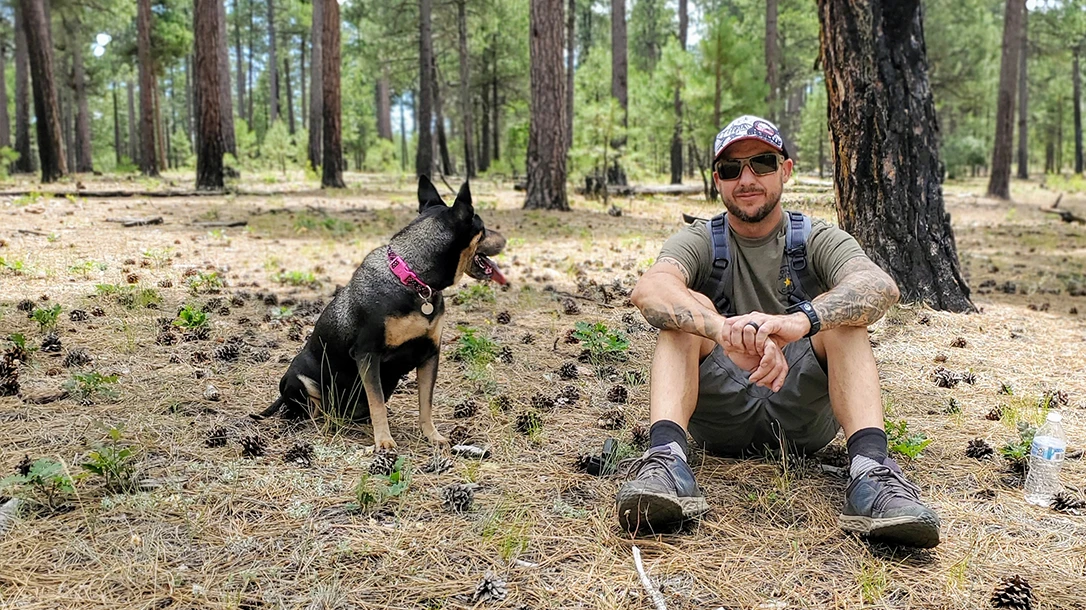Loyalty used to sound simple. You stick. You stay. You show up. Somewhere along the line, it became confused with blind allegiance, or worse, performative loyalty that appears good online but vanishes the moment it incurs any real-life costs. But the truth is quieter, and harder to face. Real loyalty begins with yourself.
If you are not loyal to your own values, your peace, and your limits, then every other promise you make will eventually collapse. You cannot show up well for your family, your friends, or your work if you keep betraying the person in the mirror. Loyalty to yourself is not selfishness; it is the anchor that makes your loyalty to others steady.
Walking Away to Protect What Matters
Here’s an uncomfortable truth: sometimes the most loyal thing you can do for someone you care about is to step aside. I had to make that choice recently when I walked away from something I helped build. It wasn’t easy. It hurt. But I realized that holding on was costing me peace and straining relationships I valued far more than the work itself. The best way to honor those bonds was to step back and let others carry it forward.
Advertisement — Continue Reading Below
That’s the paradox of loyalty, it isn’t always about staying. Sometimes it’s about leaving before the cost to your integrity, your relationships, or your peace becomes too high.
Walking away in those moments is not disloyalty. It’s an act of commitment to the long-term relationship, to the standard you want to be known by, and to the future version of you who can sleep at night knowing you chose what mattered most.
We learn loyalty by watching who shows up when it is inconvenient. Your friend who helps you move on a Saturday morning when the temperature feels like the inside of an oven.
Advertisement — Continue Reading Below
Your spouse, who chooses to listen when they are tired and could easily punt the conversation to next week. Your co-worker who tells the truth about timelines when sandbagging would make them look better in the moment. None of these moves trend. They do not come with a highlight reel. They build trust the way oak trees grow, steady and slow.

Sacrifice and Boundaries
Loyalty is not only about who you stand beside. It is also about what you stand under. Principles. Values. Boundaries that keep you aligned. You cannot be loyal to everyone and everything at the same time. The most reliable people have already decided their first loyalties. Faith for some. Family for many. A handful of friendships that sharpen rather than dull. The work that is honest and meaningful. These are not sentimental categories. They are priorities that enable faster and clearer decision-making when pressure rises.
Advertisement — Continue Reading Below
Sacrifice sits at the center of loyalty. Not grand heroic gestures every day, just consistent choices that carry weight. Leave ten minutes early so you are fully present at bedtime. Cancel the third night out to cook at home and ask questions that go beyond, “How was your day?” Put your phone in a drawer when your friend needs to say the hard thing without competing for your attention. Practice the less glamorous form of sacrifice too: telling the truth when it costs you comfort or approval. That is loyalty at work.
Friendships, Family, and Relationships
In friendships, loyalty looks like remembering the unglamorous anniversaries. Not the birthdays with balloons, the recovery milestones that represent real battles. It looks like carrying your side of the friendship without tally marks. It allows your friend to grow past the version of themselves you first met, and not punish them for changing. It is also stepping back when the friendship is turning you both into worse versions of yourselves.
Exit can be an act of loyalty to the good you saw in each other, because staying would turn that good into resentment.
Advertisement — Continue Reading Below
In romantic relationships, loyalty is often a preemptive measure. You do not wait for a crisis to become the partner your vows had finally imagined. You invest in boring habits that protect intimacy. Dates on the calendar. Uninterrupted time in the evenings. Saying, “I was wrong,” with speed and without qualifiers. Refusing to let contempt grow in private while you play nice in public. Refusing to let public validation replace private commitment.
Family loyalty is the most complicated. There are histories, patterns, wounds, and expectations.
Some families think loyalty means silence. That is not loyalty, that is avoidance dressed up as peace. Sometimes you honor your family by naming what has been breaking everyone for years. At other times, you honor them by refusing to repeat the pattern and instead building a healthier one with your own kids. And yes, sometimes loyalty to your family means drawing a line with extended relatives who will not respect the boundaries you need to protect your home. You do not have to be at every table to be faithful to the people who matter most.
Advertisement — Continue Reading Below
Work and Self-Loyalty
Work is where loyalty gets twisted. Companies love the word until it costs them. Employees love the word until a better offer arrives. Here is a healthier frame: be loyal to the craft and to the people you serve through it. Be loyal to the colleagues you work alongside. Be loyal to your own name. You do not have to tattoo the logo on your calf to be a team player.
Do good work, tell the truth about timelines, own up to mistakes, share the credit, and refuse to cut corners that will harm customers or coworkers. If you outgrow a role, leave clean. Departures can be loyal, too.
And then there is self-loyalty, which sits right in the middle of all this. If you keep betraying your limits, you will end up resenting the very people you say you love.
Advertisement — Continue Reading Below
Loyalty to others without loyalty to your health, your conscience, and your calling eventually becomes a show. It collapses under its own weight. Say no, cleanly and without apology, so your yes means something again.

Practicing the Art of Loyalty
If you like exercises, try three simple ones this week:
Advertisement — Continue Reading Below
● The loyalty audit: Write down the last time you chose the long promise over the short thrill. If the page is empty, that is not judgment; that is a chance.
● The boundary script: Prepare one sentence for moments when a short-term pull threatens a long-term promise. I don’t talk about them when they’re not here. I committed to being home by six, so I’m heading out.
● The repair call: Pick one person you have been avoiding because the conversation is complicated. Set it up. Own your part. Ask what rebuilding would look like. If it cannot be rebuilt, end with dignity anyway.
Advertisement — Continue Reading Below
The Long Promise
Loyalty will make your life smaller in specific ways. You will say no to rooms others rush into. You will miss out on some flattering opportunities that do not fit. You will not always be seen as a team player by people who confuse busyness with commitment. But your life will also grow deeper. The friends you keep will become family. The partner you practice with will feel more like home. Your kids will know what to expect from you, and that predictability will become their courage. Your work will carry your signature in the best way possible.

Final Reflection
Imagine the version of you five years from now who is thankful for the choices you made this year. What would that person say you were loyal to? Whose names are on the list? What rooms did you leave? What rooms did you keep showing up in?
The lost art of loyalty is not lost at all. It is waiting in your calendar, your group texts, your following conversation, your quiet decisions. Choose the long promise. Step out of the rooms that steal your peace and cost you the people you love. Show up where you said you would. Tell the truth even when your voice shakes. Protect what is sacred in your life.
Because at the end of the day, if you can’t be loyal to yourself, you’re just auditioning for a role in someone else’s story.

















